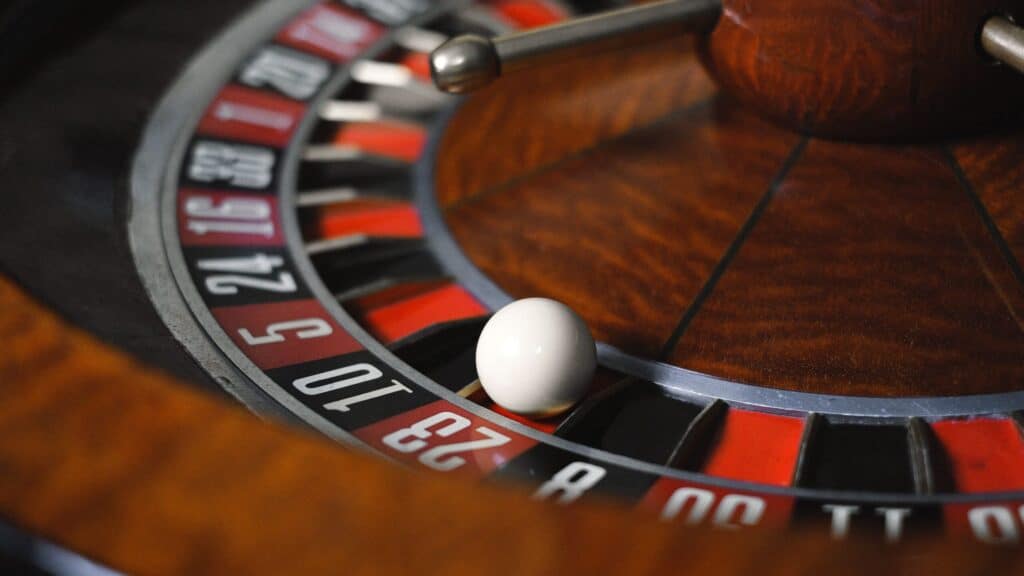Roulette is one of the most iconic and exciting casino games worldwide. Its vibrant wheel, the thrilling anticipation of the ball spinning, and the suspense of where it will land make it a favorite among players. In this in-depth guide, we’ll explore the rich history of roulette, explain the rules and gameplay, and share some fun facts to enhance your understanding of the game. Whether you’re a beginner or an experienced player, there are strategies and insights in this article that can help you elevate your roulette experience.
The History of Roulette
Roulette, a French word meaning "little wheel," is a game that has evolved over centuries. It has a fascinating history that spans Europe and the world, and its legacy continues to influence modern gambling today. Let’s take a closer look at where it all began.
The Origins of Roulette
The first known appearance of a roulette-like game dates back to ancient China and ancient Rome, where rudimentary versions of spinning wheels were used for gambling. However, the version of roulette that we know and love today originated in 17th-century France.
Legend has it that the game was invented by Blaise Pascal, a French mathematician, in the 1650s. Pascal was working on developing a perpetual motion machine when he accidentally created a spinning wheel with numbered compartments. Though his invention wasn’t intended for gambling, the wheel sparked the idea for the modern roulette game.
The Evolution of Roulette in France
The game quickly gained popularity in France, and by the 18th century, it was firmly established in Parisian gambling houses. The French version of roulette featured a wheel with 36 numbers, including a single zero. This layout would form the basis of the game’s future rules. The gambling elite of the time were captivated by the chance to predict where the ball would land, and the game spread rapidly across the continent.
Roulette Spreads to America
Roulette made its way to the United States in the 19th century, and it was in America that the game underwent significant changes. In 1843, two casino owners in New Orleans—François and Louis Blanc—introduced a double-zero version of the roulette wheel, increasing the house edge. This American variation, which features a “00” alongside the regular single zero, is now known as American Roulette. The American version became the standard in U.S. casinos, while European casinos maintained the single-zero wheel.
How to Play Roulette: Rules and Gameplay
Roulette is often seen as a simple game to learn, yet it offers plenty of opportunities for strategy. Let’s break down the rules and how to play roulette, from understanding the roulette wheel to placing your bets.
The Roulette Wheel
The roulette wheel is divided into numbered slots, each corresponding to a specific number. The layout of the wheel depends on the version of roulette being played. In European Roulette, the wheel contains 37 pockets numbered from 0 to 36, while the American Roulette wheel includes an additional 00, bringing the total number of pockets to 38. Here’s what you’ll find:
- European Roulette: 37 pockets (numbers 1-36, plus a single 0)
- American Roulette: 38 pockets (numbers 1-36, plus 0 and 00)
Types of Roulette Bets
Roulette offers a variety of betting options, and understanding these bets is key to enjoying the game. There are two main categories of bets in roulette: inside bets and outside bets.
Inside Bets
Inside bets are those placed on the numbers themselves. These bets tend to offer higher payouts, but they come with a lower probability of winning. Some common inside bets include:
- Straight Up: A bet on a single number. Payout: 35:1
- Split Bet: A bet on two adjacent numbers by placing your chip on the line between them. Payout: 17:1
- Street Bet: A bet on three consecutive numbers in a horizontal line. Payout: 11:1
- Corner Bet: A bet on four numbers that meet at a corner. Payout: 8:1
- Five-Number Bet: A bet on 0, 00, 1, 2, and 3 (only available in American Roulette). Payout: 6:1
- Line Bet: A bet on two adjacent rows of three numbers. Payout: 5:1
Outside Bets
Outside bets are those placed on larger groups of numbers. These bets cover broader areas on the table and have a higher chance of winning, but they offer lower payouts. Some popular outside bets include:
- Red or Black: A bet on whether the winning number will be red or black. Payout: 1:1
- Odd or Even: A bet on whether the winning number will be odd or even. Payout: 1:1
- High or Low: A bet on whether the winning number will be in the low range (1-18) or high range (19-36). Payout: 1:1
- Dozens: A bet on one of the three dozen groups of numbers (1-12, 13-24, 25-36). Payout: 2:1
- Columns: A bet on one of the three vertical columns of numbers. Payout: 2:1
How the Game Works
Once all bets have been placed, the dealer spins the roulette wheel in one direction and releases a small ball in the opposite direction. The ball gradually loses speed and lands in one of the numbered pockets. The winning number is the number where the ball rests, and players who have bet on that number or group of numbers are paid accordingly. If the ball lands on a number you’ve bet on, you win!
Understanding Payouts
The payouts in roulette depend on the type of bet you’ve made. Here’s a general overview of payouts for various bets in European Roulette:
- Straight Up: 35:1
- Split Bet: 17:1
- Street Bet: 11:1
- Corner Bet: 8:1
- Five-Number Bet: 6:1 (only in American Roulette)
- Line Bet: 5:1
- Red or Black, Odd or Even, High or Low: 1:1
- Dozens, Columns: 2:1
The odds of winning a particular bet depend on the number of possible outcomes. For example, a straight-up bet on a single number has a 1 in 37 chance of winning in European Roulette, and a 1 in 38 chance in American Roulette, making it one of the least likely bets to win, but the highest paying.
Fun Facts About Roulette
Roulette has been a staple of casinos for centuries, and it’s full of interesting facts and trivia. Here are some fun facts about the game that you might not know:
1. The Meaning of the "Double Zero"
The addition of the "00" on the American Roulette wheel was originally created to increase the house edge. While this gave the casino an advantage, it also increased the excitement of the game, as more potential outcomes were introduced. The “00” is one of the biggest differences between American and European roulette.
2. The "Roulette Curse" Myth
There is a popular myth among roulette players that the game is “cursed.” This superstition suggests that players who bet too much or fail to follow certain rituals will experience a run of bad luck. However, the truth is that roulette, like all casino games, is purely based on chance, and there’s no scientific basis to the idea of a curse.
3. The Most Common Winning Numbers
Some players believe that certain numbers come up more frequently than others, leading them to try and predict hot or cold numbers. While every spin of the roulette wheel is independent and random, some players look at the frequency of previous numbers to decide which numbers to bet on. Statistically, each number has an equal chance of being hit, but this hasn’t stopped players from tracking past results for fun!
4. Famous Roulette Players
Roulette has attracted many famous players over the years, including several individuals who have managed to beat the system using their own strategies. One of the most well-known roulette players is the legendary Charles Wells, who famously “broke the bank” at the Casino de Monte-Carlo in 1891, winning a fortune and becoming a celebrated figure in the history of gambling.
Conclusion
Roulette is a thrilling and timeless game with a rich history, simple rules, and a wide array of betting options. Whether you’re playing European or American roulette, the key to success lies in understanding the rules, applying strategies, and enjoying the excitement that each spin brings. From its origins in 17th-century France to its modern-day popularity in casinos worldwide, roulette continues to captivate players with its charm and unpredictability. So, the next time you sit down at the roulette table, remember these tips and fun facts to help make your experience even more enjoyable. May the wheel spin in your favor!



